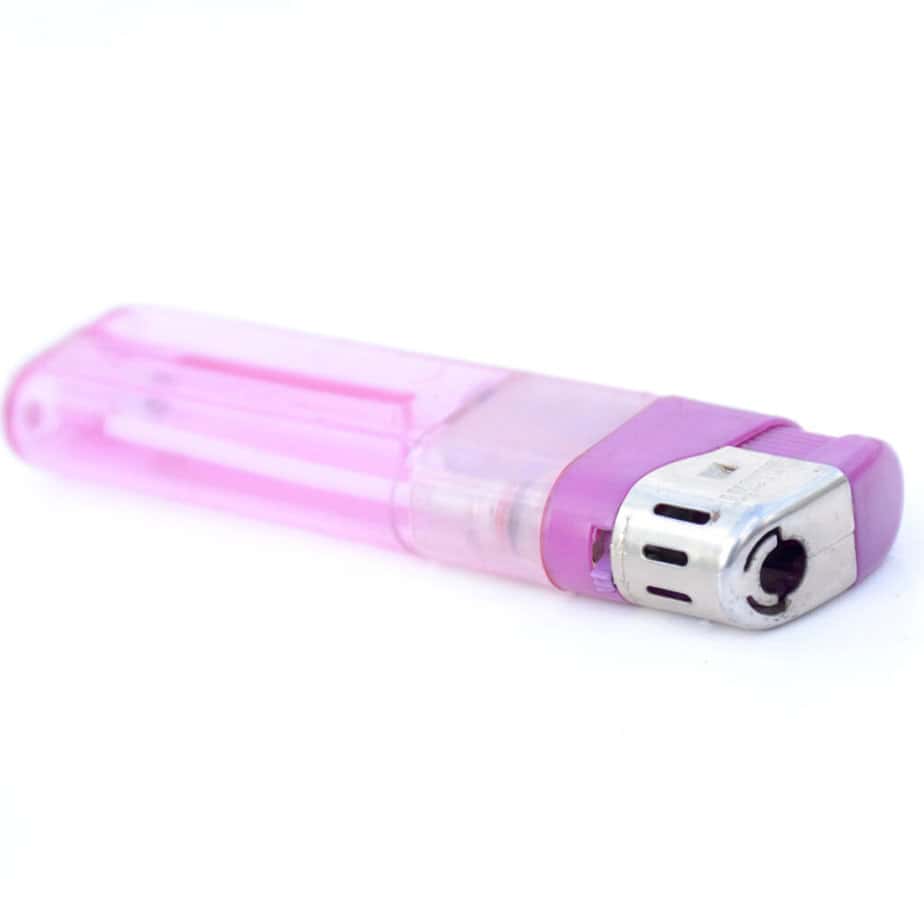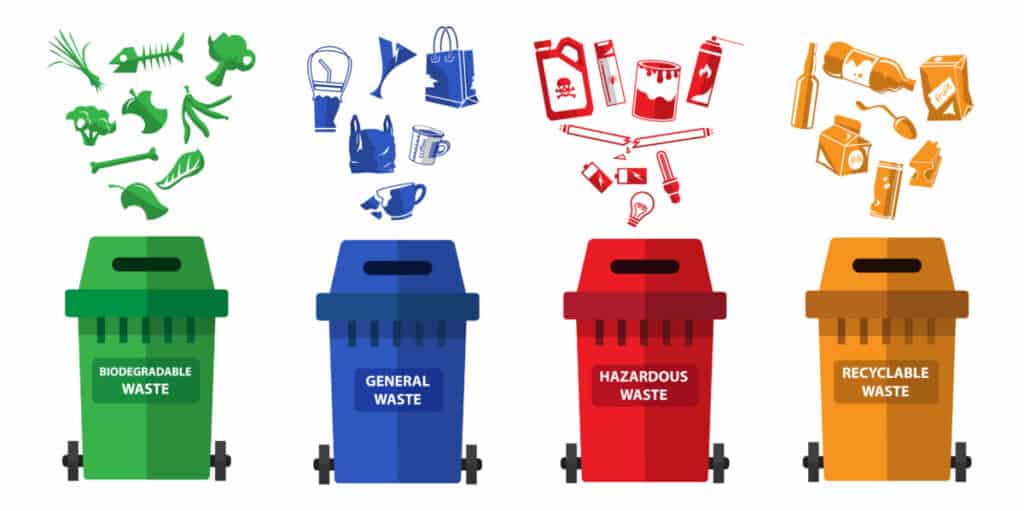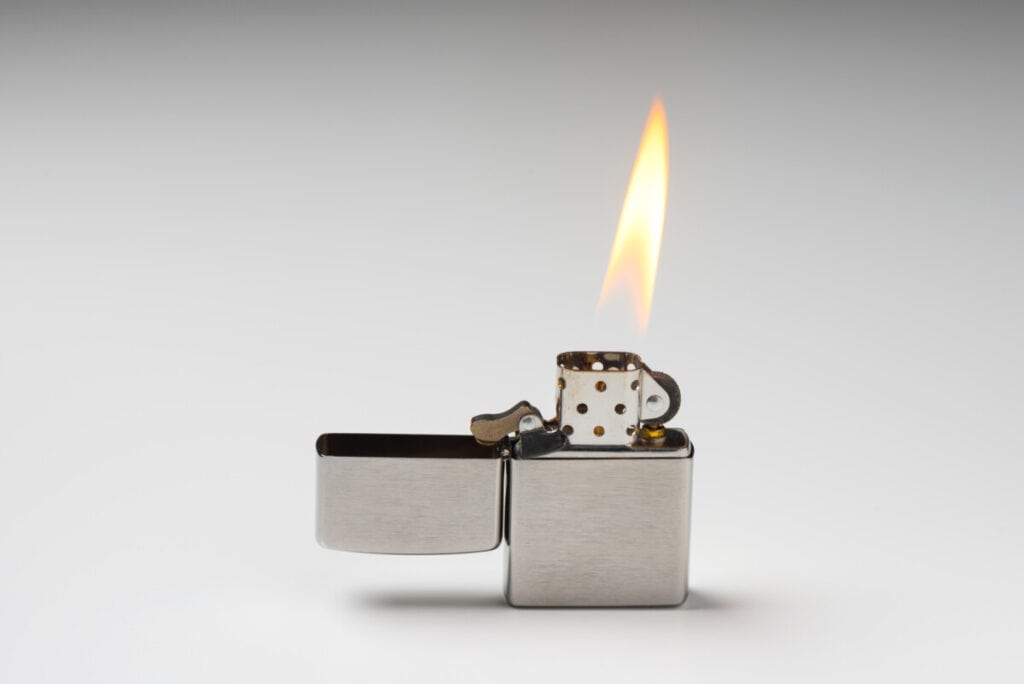
It is important to recognize that different materials and products require different methods of disposal, which can prove much more complicated than others. Lighter fluid is one of these materials.
Lighter fluid is considered hazardous material and must be disposed of as such in its original containers and with care. To dispose of these materials safely local waste management collects this waste through drop-offs or home pick-ups that can be specifically scheduled.
Let’s go over the specifics to make this process easier!
Steps to Disposal
Read Labels and Warnings
Any container of lighter fluid will come with labels and warnings as well as directions or instructions. These can sometimes tell you how to dispose of a product. Read carefully and follow any instructions written. However, if there are no directions- here is what to do next.
Hazardous Waste
Lighter fluid is considered hazardous waste. Hazardous waste has its own specific method of disposal that is very important in keeping everyone involved safe. What is hazardous waste though and why does lighter fluid fall into this category? Hazardous waste is any product or item that is considered to be combustible, flammable, corrosive, toxic, or reactive.
This means other products considered to be hazardous waste are motor oil, pesticides, paints, batteries, and even nail polish remover. Make sure to check your items before throwing them away, as it is important to dispose of these items properly to prevent accidents or injuries.
Locate a Disposal Site
There should be a hazardous waste disposal site near you or your city. These are most of the time drop-off locations run by the local waste management. These sites often have specific drop-off schedules for each month, meaning if you missed the public drop-off day for the current month, you will have to wait until the next month to dispose of your lighter fluid.
The advice we have is to call ahead and make sure you are clear about dates, times, and materials before you make a trip. Different sites might have different rules or procedures they require in order to dispose of your materials.
Another viable option is to find a company that does home pick-ups for hazardous waste. Almost all local waste managements will offer this service for a fee as well as give you very specific details on how to store and ready the materials for pick-up. Make sure you clarify what materials you are wanting to dispose of and have a clear idea of how the process will go before the pick-up day to save time and effort in the long run.
There are plenty of websites that will take your location or city and help assist in the locating of disposal sites. These websites will help you find credible companies as well as lead you to their websites for information, hours, and phone numbers.
Keep in Original Container
For storing as well as transfer or any other act you take pertaining to these hazardous materials make sure they stay in their original packaging. This helps protect from accidents that could occur. These materials are disposed of in a very specific way, so confusing workers as well as yourself by transferring the materials, or in this case lighter fluid, to a different container, especially one without a label, can be dangerous.
Cost or Fees
Some places might have fees in place other than the simple pick-up fee required from the waste management company. Usually, this would not cost too much money, however. Most sources say that a lighter only costs around $6.75 to dispose of. In most places it is free to dispose of your small waste even if it contains hazardous materials.

What Not to Do
There are a couple of things to watch out for or to be careful of when disposing of lighter fluid. There is a lot that we covered as well as a lot of information to be found online. Here are a few reminders and warnings to help you be cautious with your lighter fluid and disposal.
No oil can go down the drain, most people who have worked a food service job can attest to that. The sentiment is the same with lighter fluid. Never pour lighter fluid down the sink to throw it away. This is very bad for the water system and the environment. lighter fluid can also be corrosive and might damage the pipe system and wildlife. In some places it is even illegal to pour hazardous materials and liquids down the drain. Make sure to avoid fines that might find you if you were to flush these materials.
Make sure never to mix hazardous materials with other liquids or wastes. You might consider it saving space or reducing the amount of plastic needed to be recycled, but this act can cause accidental chemical reactions that could combust or give off poisonous gasses. Never mix your lighter fluid with any other liquid or other product, even if the other material is not hazardous.
Do not dump your lighter fluid yourself. This should be common sense, but never pour your lighter fluid onto the ground or bury it. Do not do this one public land nor in your own backyard. This could cause fires and create a large danger not only for nature but for yourself as well. Additionally, federal law prohibits the improper disposal of hazardous materials. You could be fined for these actions so make sure you understand how best to dispose of each one of your hazardous items.
To Remember

Remember, these items are hazardous. Make sure to handle them with care and dispose of them properly. It is much better to throw them away in the correct manner than to keep them around your house where any number of mistakes could be made to cause accidents.
Lastly, check your local and state laws for all disposal tips and rules. It always pays to be prepared, make sure you know exactly what assistance is at your disposal as well as exactly what is expected of you.
Follow these simple steps to dispose of your lighter fluid safely, responsibly, and legally.
Related Topics:
If you like the article above, here are some other similar articles you should check out!
Cost to Dump an Old Four Wheeler
